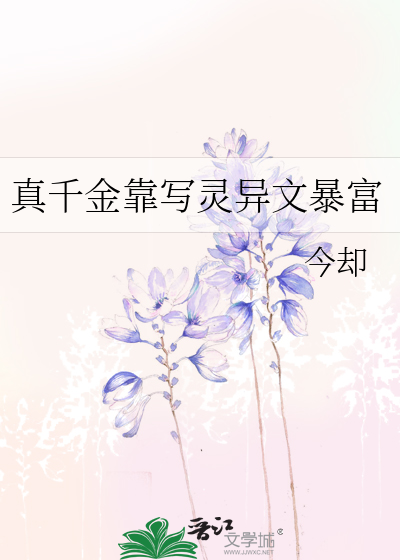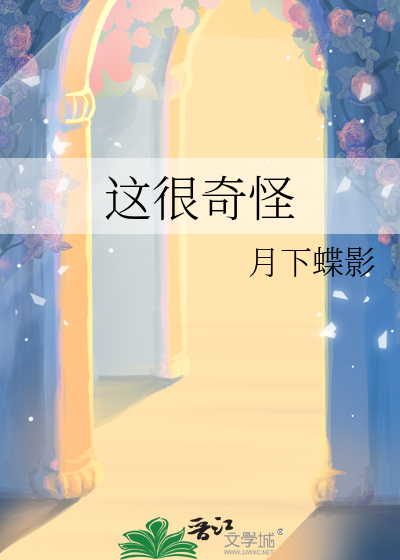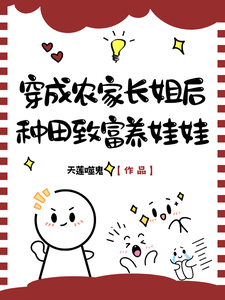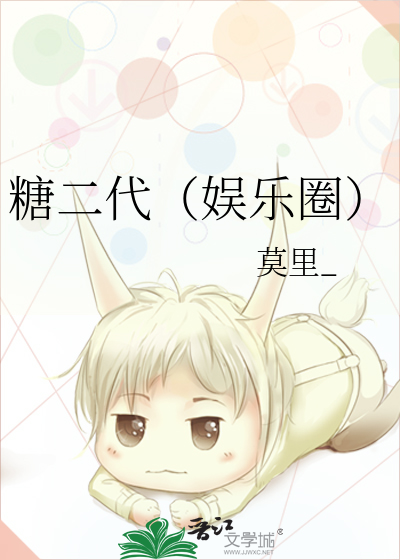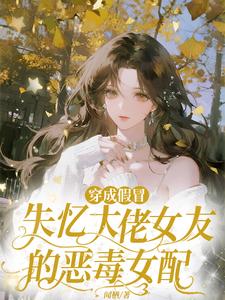Lady Chang called Cui Lanting to ride in the same carriage as Lady Dong, and Cui Lanyin knew at once that she had something to say.
Once the carriage had left the imperial city, Lady Chang wore an apologetic expression as she explained, "You must have understood the Meng family's intentions just now? Two days ago, they sent someone to inquire with me, but you were ill, and your parents couldn’t make decisions for you, so I didn’t bring it up. Who would’ve thought the Meng family would be so impatient as to bring it up right at the palace gates… Believe me, dear niece, I truly had no idea beforehand…"
Cui Lanyin did believe her and smiled in response. "Of course, Aunt. You’ve always been thorough in your dealings—you’d never act so rashly."
Pleased by her words, Lady Chang affectionately took her hand. "You understand me best, Yinyin. If only Ting’er had half your composure, I’d have far fewer worries."
Cui Lanyin merely smiled and didn’t continue the conversation.
Though the second branch of the Cui family and Lady Chang had their own interests, they still understood propriety—at least they wouldn’t invite gossip in full view of the public.
Years ago, when Cui Lanyin’s grandfather, Cui Xin, passed away, his wife, Lady Tan, was pregnant with his posthumous child. Though the imperial physician assured her it would be a son, Madam Zhu argued that a newborn inheriting the title would leave the family with an empty rank and no real influence, causing the Cui family to decline from prolonged absence in court. Thus, she made Cui Chuan, the second son, vow to "never split from the main branch and always support them," and arranged for him to inherit the title of Count of Wu’an instead.
Cui Xin and Lady Tan had been married for years without children, while Cui Chuan already had two sons, Cui Mian and Cui Fang. With Cui Xin gone, Lady Tan and her young child would struggle to uphold the family’s standing without the second branch’s support, so she had no choice but to grit her teeth and agree.
Unfortunately, after two generations under Cui Chuan and Cui Mian, the family’s influence waned instead of growing. When Emperor Xuanning ascended the throne, he gradually weakened the authority of the Five Military Commissions, reducing them to managing military households and farmland. Cui Mian now held the nominal position of Vice Commissioner in the Five Military Commissions—a respectable third-rank title, but with little real power.
Three years ago, when the Tartar troops approached Yancheng, Emperor Xuanning led the court south to the provisional capital, Yingcheng. Overnight, properties in Yancheng became worthless, and mansions and shops flooded the market at rock-bottom prices. While noble families could afford to wait, the Cui family couldn’t, forced to sell at devastating losses.
The journey to the new capital was chaotic, and the Cui family was robbed along the way. By the time they reached Yingcheng, both branches had lost more than half their wealth, barely maintaining a façade of dignity.
Under these circumstances, the second branch felt somewhat guilty toward the main branch. Over the past three years, they had consulted the main branch on every decision, no longer acting unilaterally as they had in Yancheng.
Seizing the moment, Lady Chang said, "You’re a sensible girl, and with no outsiders here, I’ll lay out the pros and cons of the Meng family’s marriage proposal. Whether you accept is entirely up to you."
Cui Lanyin replied, "I know the court has a rule that family members of frontier generals ranked third-grade or higher cannot accompany them to their posts and must remain in the capital. Otherwise, Young Master Meng would be a sought-after son-in-law for many families.
But didn’t Lord Meng receive his title and promotion to third-rank just three years ago? For a family of such standing, finding a suitable match among equals shouldn’t be too difficult, and lowering standards would make it even easier. How could they still be searching after three years?"
Seeing that Cui Lanyin was even more knowledgeable about court regulations and official promotions than Cui Chang, the heir of their own household, Lady Chang abandoned any subtlety and laid out the truth.
"At first, Grand Madam Min and Madam Luo both wanted to marry their own nieces into the family. Back and forth, Meng Huaizong’s marriage was delayed until he was past twenty.
Later, neither wanted their own niece to endure a lonely life as a general’s wife, so they suggested making their side the secondary wife who would suffer in Shanxi while the other side took the primary role. This back-and-forth went on for another three years."
How absurd! If it weren’t her own marriage at stake, Cui Lanyin would’ve applauded the sheer audacity.
Quick-witted as ever, she grasped the implication. "So the Meng family must’ve heard I’m sickly. A frail girl like me would make the perfect decorative wife—no trouble at all."
Afraid she’d take it the wrong way, Lady Chang hurriedly clarified, "Our family never spoke of your illness to outsiders. Even if the Meng family heard something, it couldn’t have been detailed. Besides, the Mengs are newly ennobled with little influence in Yingcheng—they mainly associate with other military families. I’ll make sure no rumors spread."
Cui Lanyin gave a faint smile. Given how Lady Min and Lady Luo had behaved earlier, if she refused the proposal, the entire capital would hear within three days that she was a sickly woman unfit for childbearing. Then she’d truly be left with no choice but to become a stepmother as someone’s second wife.
"What benefits did the Meng family offer?"
"Five thousand taels of betrothal gifts, which you wouldn’t need to return, plus military appointments for two of our family’s young men."
Only Cui Chang and her younger brother practiced archery and horsemanship—no one else in the family was suited for the military. But her brother…
"The Meng family is being quite generous. Let me think it over," Cui Lanyin said noncommittally.
"No rush, take your time." Her ability to connect the dots so swiftly made Lady Chang wary. She didn’t press further, deciding to discuss it with Cui Mian first.
By the time they finished talking, they had arrived home. After alighting at the inner gate, Cui Lanyin bid the second branch farewell and returned to the main residence.
The main branch had a separate side gate wide enough for carriages, facing the eastern street, which the family usually used.
A connecting gate linked the eastern and western compounds, making visits between the two branches convenient.
With Aiye in tow, Cui Lanyin walked along the passage outside the inner gate until she reached the connecting gate. After calling for the matron to open it, she entered the eastern compound where the main branch lived.
Unlike the main branch, the second branch couldn’t let go of appearances. After moving to Yingcheng, they feared others would notice their poverty and tried to keep up with the noble families by buying this estate in the western district—only to overplay their hand and reveal their desperation. Otherwise, why would the Meng family have approached them?
Because everyone clustered in the western district, properties there cost over twice as much as those in the east, and they could only scramble for leftovers. With the same funds, they could’ve bought a lakeside courtyard in the eastern district.
No lake or garden was one thing, but at least the place should’ve been spacious enough. For the main branch, with Cui Su and Cui Jian still unmarried, it was manageable. But for the second branch, when Cui Chang married last year, Lady Chang had to rearrange rooms endlessly just to prepare a bridal chamber.
And this was only the beginning—Cui Fu, Cui Yu, Cui Ran (Cui Fang’s son), and Cui Zhong were all waiting in line.
Lacking priorities and decisive judgment, the second branch had remained stagnant for years.
Had they bought a modest estate in the eastern district and invested the savings, they could’ve earned substantial returns in two years. Instead, both branches were stuck in genteel poverty, always a step behind.
After the Meng family’s overture today—despite Prince Wei’s aloof demeanor—Cui Lanyin decided she must visit Prince Wei’s estate. Who knew? Perhaps her honorable uncle would permit her entry.
The south was rainy. After one clear day, drizzles returned the next. Perhaps the palace visit had exhausted her, for Cui Lanyin’s headaches flared up again. Thankfully, she recovered after just two days in bed.
Though Lady Chang didn’t rush her, she sent Nanny Du over twice for minor matters. Cui Lanyin understood—the Meng family was waiting for an answer.
Rainy days were meant for guests. And what greater filial piety was there than braving the rain to pay respects?
The next morning, Cui Lanyin rose early and adorned herself as usual for going out. She wore a simple pearl hairpin and a dignified pale blue pleated skirt paired with a plain dark purple silk jacket—an outfit perfectly suited for meeting elders.
The ancient-style pastries newly acquired by Cui Sheng were quite delightful, and the whole family had taken a liking to them. Cui Lanyin pointed out two varieties and had them prepared.
After the family finished breakfast together, Cui Lanyin mentioned she wanted to go out for a stroll. Aiye and Sangzhi carried a food box filled with warm pastries, and Geng Dayou was summoned to accompany them as they left the house.
She often visited the family shops to oversee business, so no one thought much of it, assuming she simply wished to take a walk. They cheerfully saw her off.
Yongjia Lane lay southwest of the imperial city, facing the moat. Exiting the lane and heading south led directly to West Chang’an Street, making it exceptionally convenient for reaching the palace.
After the carriage traveled for nearly half an hour, Geng Dayou called from outside, "Miss, we dare not go any closer!"
Cui Lanyin lifted the curtain and saw only the eastern wall of Prince Wei’s residence, stretching far into the distance—a testament to the vastness within.
Instructing Geng Dayou to wait there, Cui Lanyin stepped down from the carriage with Aiye’s support, while Sangzhi followed behind with the pastry box. The trio entered Yongjia Lane.
Beneath the towering walls, they felt minuscule. Aiye and Sangzhi couldn’t help but grow nervous. "Miss, will he really see us?"
Cui Lanyin had no certainty, but she replied firmly, "Of course. We are family, after all."
The guards at the prince’s residence soon noticed the newcomers. Two armored sentries approached and halted them, though their stern expressions softened slightly after a glance. "This is a restricted area of the prince’s residence, not a place for idle visits."
Aiye adopted the authoritative air befitting a first-rank maid of a noble household and stepped forward. "We are from the main branch of the Wu’an Marquisate. Kindly inform His Highness that a cousin from the Cui family has come to pay respects."
Cui Lanyin had braced herself for interrogation, but to her surprise, the guards exchanged another glance in her direction before politely gesturing ahead. "Please wait here briefly, miss." One escorted the trio toward the main gate while the other hurried off to deliver the message.
Before the grand, five-sectioned gate stood two imposing stone lions, their presence awe-inspiring, while the brass nails on the doors gleamed dazzlingly.
After a tense wait, a young man in his twenties, dressed in a dark blue robe and exuding an air of composed dignity, strode swiftly out from a side entrance.
He bowed to Cui Lanyin and said simply, "Please follow me," then stood waiting without further pleasantries.
Even the lowest servant of a high-ranking official carried authority, and Cui Lanyin had prepared herself for difficulties. This reception was already better than expected.
That Prince Wei had agreed to see her was an unexpected boon—everything else was negligible.
"Lead the way, please," Cui Lanyin returned the courtesy, and the three followed him through the side gate into Prince Wei’s residence.
Qinglin walked ahead, inwardly perplexed. He couldn’t fathom his master’s thoughts. Just days ago, when the Yao family—Prince Wei’s maternal relatives—had come to pay respects, the prince had shown little enthusiasm.
After all, Prince Wei had even avoided meeting the Yao women. Why then would he agree to see this Cui lady now?
They encountered the chief steward and a few others who had rushed over upon hearing the news, but Qinglin brushed past them without a word.
The chief steward and his men had grown accustomed to such behavior lately. They watched as the group headed toward the study beside the main hall and hastily ordered tea and refreshments to be sent in.
The chief steward lamented silently. The newly established residence was still lacking in many ways, and the master remained as uncommunicative as ever.
When Bailin had been around, things were smoother. Now, even with Qinglin, Chilin, and Xuanlin combined, they couldn’t match Bailin’s efficiency. Yet all matters concerning Prince Wei had to go through these three. The chief steward found himself juggling both administrative and household duties—who could he even complain to?
